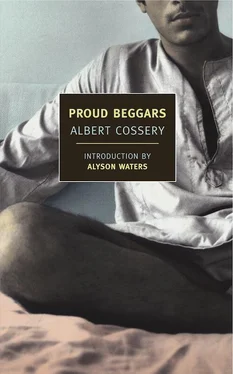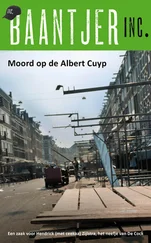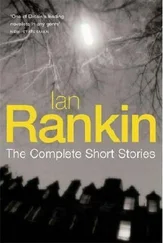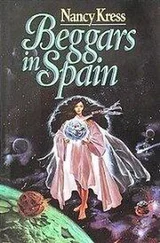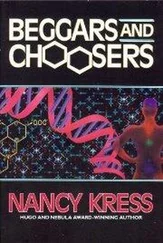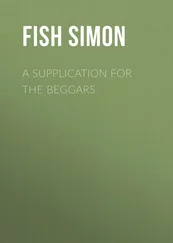“You can say that again. It’s a black day for you.”
Yeghen threw back the blankets completely and sat up on his bed, his legs folded under him; with his rickety torso, bony face, and wild eyes, he resembled a Hindu fakir shrunk by fasting and mortification.
“A murder!” he repeated. “What does a murder have to do with me?”
“I’m going to tell you. But first, answer me — do you know that one of the girls at Set Amina’s house was strangled a few days ago?”
“I heard that,” said Yeghen.
“It seems that you are a habitué of the house.”
“That’s true.”
“Then you knew young Arnaba?”
“Very well. She was the most beautiful of the lot.”
“So! Since we agree on all that, can you tell me where you were at the hour of the crime?”
Yeghen didn’t even bother to think, or to ask what the hour of the crime was; he was sure not to be wrong. He answered smoothly, “I was sleeping, Excellency!”
“Where were you sleeping?”
“I don’t know. I sleep everywhere.”
“So, you son of a bitch, you don’t know anything about this affair?”
“No, on my honor! I don’t know anything. I could perhaps give you some information about certain drug dealers. But a crime! Really, that’s beyond my power.”
“Let me tell you that you are a prime suspect.”
“Me! But I was sleeping, Excellency. How can an intelligent officer like you make a mistake like that?”
“Stop the monkey business!” Nour El Dine scolded. “I know how to make you talk!”
He realized he had just uttered an absurdity, one of those commonplaces he often used in the course of an interrogation and which meant absolutely nothing, despite the threat they implied. The truth was that he felt sick with disgust and almost moribund. In this state he would never make anyone talk, at least as long as he continued to breathe the polluted air of this room. He glanced toward the window with closed shutters, ardently desiring to open them but trembling at the thought of letting in daylight. Darkness suited him; it prevented Yeghen from noticing his agitation. From the street rose the deafening noise of cars, the curses of nearly demented carters, and the interminable clanging of streetcars trying desperately to open a path through the eddying apathetic crowd. These stale sounds of life nearby revived his will. Looking for some furniture to lean against, he took a few steps and ended by sitting on the edge of a table. This visit was going to be a total failure if he didn’t change his tactics. The difficulty of an interrogation with Yeghen lay in the fact that the fellow was gifted with a subversive intelligence that made fun of everything. He was an old offender and an inveterate hashish smoker; he was in contact with all of the dealers and ne’er-do-wells in the native quarter. Still, Nour El Dine didn’t believe he was guilty. What he was after here was simply a trail, a clue that could lead him to the real killer. He knew that the man before him was exempt from all violent passions, taking nothing seriously, except drugs, and thus could be suspected only of cowardice; he was incapable of committing a crime. Because for Nour El Dine, to be unaware of the vicissitudes and abominations of existence was a sure sign of cowardice. Could he permit himself not to take life seriously? Where would the world be if misfortune no longer mattered?
Once more he was overcome with bitterness, and he gave Yeghen a haunted look. He couldn’t help finding something laughable and distasteful in this whole situation. This naked, emaciated man seated on his bed undergoing police questioning seemed like an absurd, unnatural thing. Mockery was everywhere. It was the last straw when Yeghen began to laugh.
“There’s nothing here to laugh about,” said Nour El Dine. “You’re involved in dirty business.”
“Excuse me, Excellency! But the world is becoming more and more amusing. Don’t you think so?”
“What makes you so optimistic?”
“The bomb,” said Yeghen.
“What bomb?”
“You haven’t heard about the bomb? Really, Inspector, you astound me! Even children know this. It seems they’ve invented a bomb capable of destroying an entire city with one blast. You don’t think that’s funny? What would amuse you then?”
For a moment Nour El Dine was dumb with stupor, trying to understand. This interrogation had become pure folly.
“I don’t give a damn about that cursed bomb! It doesn’t change your situation one bit.”
“But it does, Excellency. Think for a minute. What could I fear, faced with the threat of the bomb?”
The air was growing stifling. The street noises suddenly stopped without reason, as if life had drained away forever. Nour El Dine was fascinated by Yeghen’s ugliness; he couldn’t tear himself away from the sight of this pitiful nudity that made him want to vomit. He was grimacing like someone with stomach cramps.
“Are you perhaps unwell?” asked Yeghen. “I’m sorry for what I said. You know, that bomb business was a joke. There’s nothing to worry about. Anyway, they’d never drop it around here. It would cost too much. Believe me.”
“Shut up, you miserable clown! Come on, get dressed, we’re leaving.”
“At this hour?” implored Yeghen. “Have pity on me, Excellency. What have I done to you?”
“You’re going to get dressed, you son of a bitch!”
“Very well. At your service, sir! Only just don’t push me around.”
Yeghen jumped to the foot of the bed and found his clothes thrown pell-mell on a chair. He dressed quickly, then opened the bedroom door.
“After you, sir!” he said, bowing very low.
Nour El Dine left the room followed by Yeghen. Down in the street, they looked at each other for a moment as if to recognize each other. Yeghen was jovial.
“I invite you to have a coffee, Excellency!”
Nour El Dine grabbed Yeghen by the arm and pulled him along rapidly, muttering between his teeth, “It’s poison I’m going to offer you, not coffee.”
LIT BY the flickering candle flame, Gohar’s face reflected ecstasy. Seated on the only chair in his room, his hands on his knees, he leaned his head against the door that separated him from his neighbor’s flat. What he was hearing was beyond anything he had ever hoped for. Amazement held him fast, his mind strangely receptive, conscious of being the only witness to an extraordinary event. This ecstatic state had already lasted for a while. His eyes closed, Gohar savored with inexpressible contentment the diverse phases of a domestic quarrel. Each of the words pronounced on the other side of the wall struck him like a sparkling truth, illuminating the shadows of his consciousness.
For several days, the flat of his dead neighbor had been occupied by new tenants. It was a couple made up of a man with no arms or legs, a beggar by trade, and his wife, a big, athletic-looking gossip, as imposing as a ten-story building. Each morning she would deposit her husband on a sidewalk in the European quarter, then return at nightfall to bring him back home. Gohar had met them once on the stairway. The woman was carrying the man on her shoulder as she might have carried a water jar. She had answered Gohar’s greeting in a loud, sepulchral voice, capable of freezing the blood in the veins of an especially brave man. She had a harsh look and the arrogance of a woman equipped with a man.
Gohar couldn’t believe his ears; the more he listened, the more trouble he had imagining the scene unfolding in the next room. The woman was creating a classic scene of jealousy with the limbless man. Gohar heard the man defend himself energetically. He denied the woman’s accusations, then abused her in turn, accusing her of debauchery, sorcery, and eating cadavers. Finally he began to moan and to demand his food. But the woman remained deaf to his famished cries and continued to assail him with insults and reproaches.
Читать дальше
